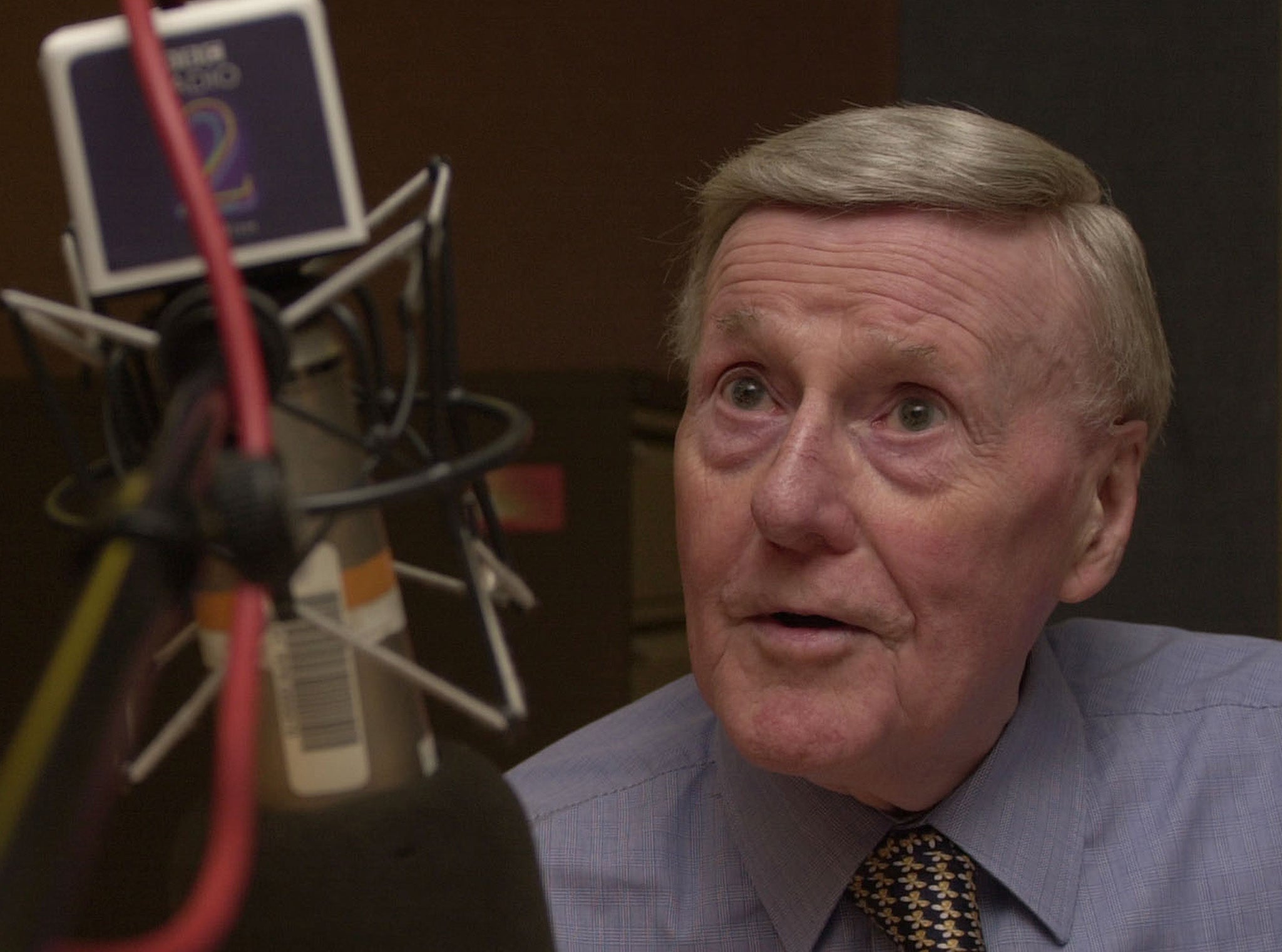BBC Radio Two disc jockey Sir Jimmy Young has died, aged 95
The Queen was said to be a fan of his show

Your support helps us to tell the story
From reproductive rights to climate change to Big Tech, The Independent is on the ground when the story is developing. Whether it's investigating the financials of Elon Musk's pro-Trump PAC or producing our latest documentary, 'The A Word', which shines a light on the American women fighting for reproductive rights, we know how important it is to parse out the facts from the messaging.
At such a critical moment in US history, we need reporters on the ground. Your donation allows us to keep sending journalists to speak to both sides of the story.
The Independent is trusted by Americans across the entire political spectrum. And unlike many other quality news outlets, we choose not to lock Americans out of our reporting and analysis with paywalls. We believe quality journalism should be available to everyone, paid for by those who can afford it.
Your support makes all the difference.Long-time Radio Two disc jockey and former singer, Sir Jimmy Young, has died aged 95.
Sir Jimmy was one of the first Radio One DJs when the channel was launched in 1967 after working on pirate radio station, Radio Luxembourg.
He joined Radio Two in 1973 presenting an early afternoon slot until his retirement in December 2002. The talk-based show is now presented by Jeremy Vine.
The Queen was said to be one of his millions of fans who tuned in to his show on BBC Radio 2.
Many Prime Ministers appeared on his show and Sir Jimmy had interviewed every one since Harold Macmillan, with Baroness Thatcher appearing as a guest no fewer than 14 times.
LBC radio presenter Iain Dale tweeted: "Much respect to Sir Jimmy Young who died today, aged 95. The word 'legend' is overused, but not in his case. A true icon of radio."
Sir Jimmy was born Leslie Ronald Young in 1921, the only child of a Gloucestershire miner
He began his showbiz career, however, as a singer landing a record deal in 1949.
Sir Jimmy scored his first hit record in 1951 with 'Too Young' before becoming the first British singer to have two consecutive number one hits in 1955 with 'Unchained Melody' and 'A Man Called Laramie'.
His singing career tailed off near the end of the Fifties, claiming the success of Elvis Presley killed off the popular appeal of his balladeering style.
Additional reporting by PA
Join our commenting forum
Join thought-provoking conversations, follow other Independent readers and see their replies
Comments